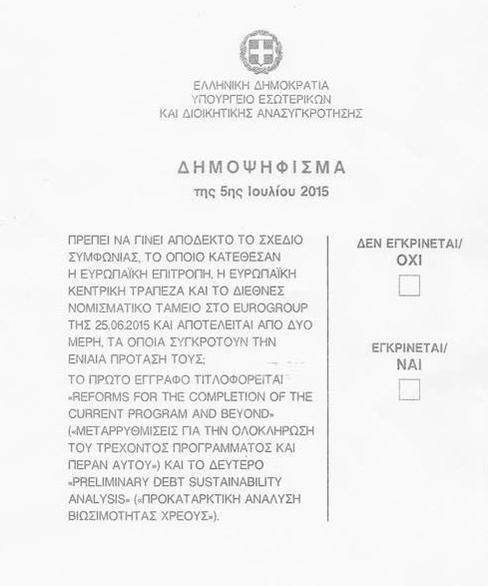
Photo credit to Orestis Panagiotou / EPA.
If you think the past nine days have been tense, just wait.
For all the uncertainty and mistrust that have characterized Greek-EU relations since Greek prime minister Alexis Tsipras suddenly announced a snap referendum last Friday, the week ahead promises to reach ever dizzying heights of suspense after Greek voters delivered a strong endorsement to Tsipras by rejecting the terms of the most recent deal on offer from the Eurogroup — over 61% of the electorate voted no (or ‘oxi’). The result, whether Tsipras admits it or not, essentially begins the process by which Greece will eventually leave the eurozone.
There are no winners here.
Tsipras and the far-left SYRIZA (Συνασπισμός Ριζοσπαστικής Αριστεράς, the Coalition of the Radical Left) took power after January’s parliamentary elections on the mutually incompatible pledge of keeping Greece in the eurozone while demanding more lenient conditions from the country’s creditors. In so doing, Tspiras miscalculated European goodwill. It wasn’t unreasonable for Tsipras and finance minister Yanis Varoufakis to argue that Greece’s debt load is unsustainable. Moreover, even plenty of orthodox economists, including many at the International Monetary Fund, one of Greece’s creditors, admit that years of austerity have exacerbated economic conditions — GDP contraction of nearly 30% since 2008, a 26% unemployment rate and a nearly 50% youth unemployment rate. But the erratic and amateurish approach of the Greek government, capped by Tsipras’s 11th-hour decision to call the July 5th referendum, destroyed what little goodwill remained for his government.
There’s still time — even now — for Greece and the rest of Europe to reach a deal. But the complete lack of trust between Tsipras’s government and the entirety of the rest of the eurozone’s leadership makes it much less likely to happen. The complete breakdown in trust between Tsipras and even sympathetic European leaders must certainly rank among the most troubling casualties of the past nine days. Continue reading If Grexit comes, Greece will have wasted five years in depression →
![]()
![]()
![]()



